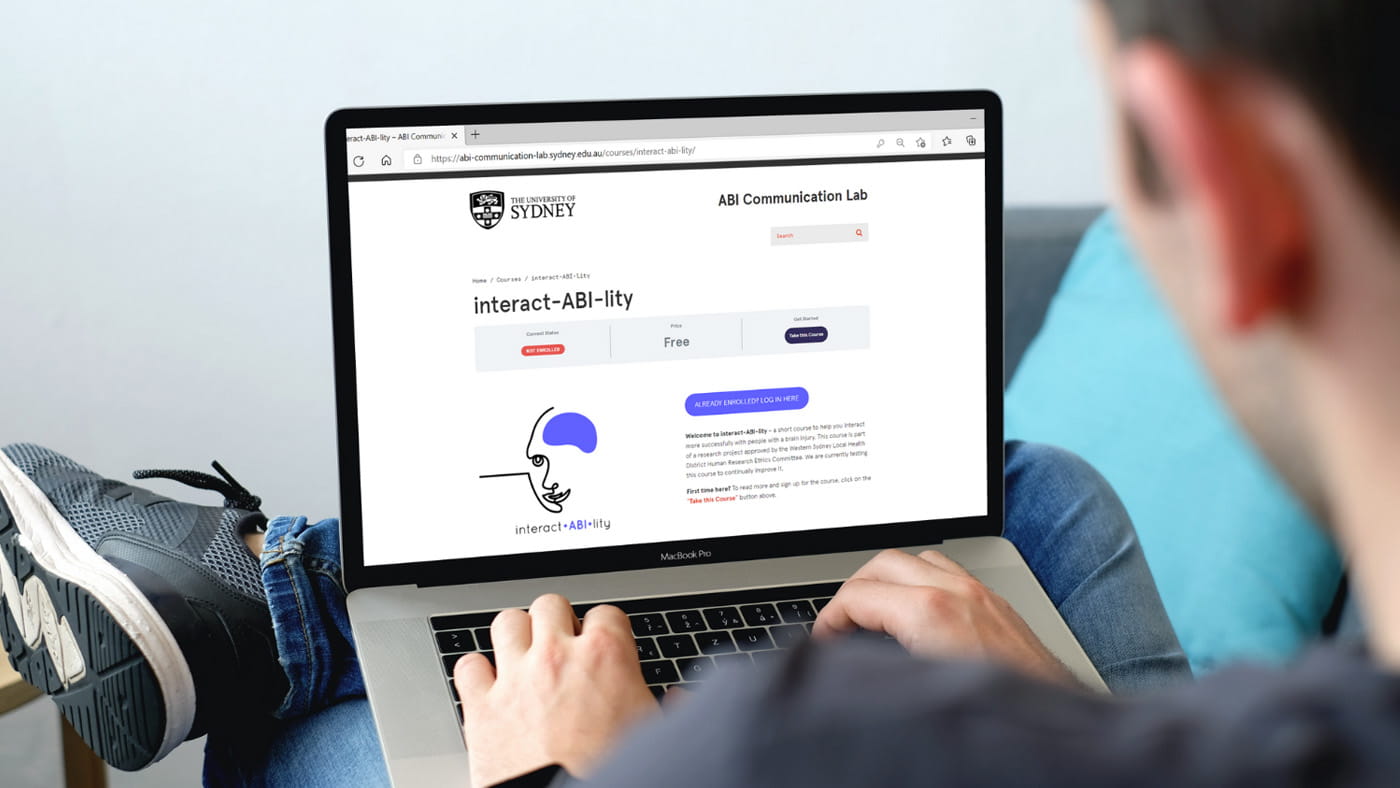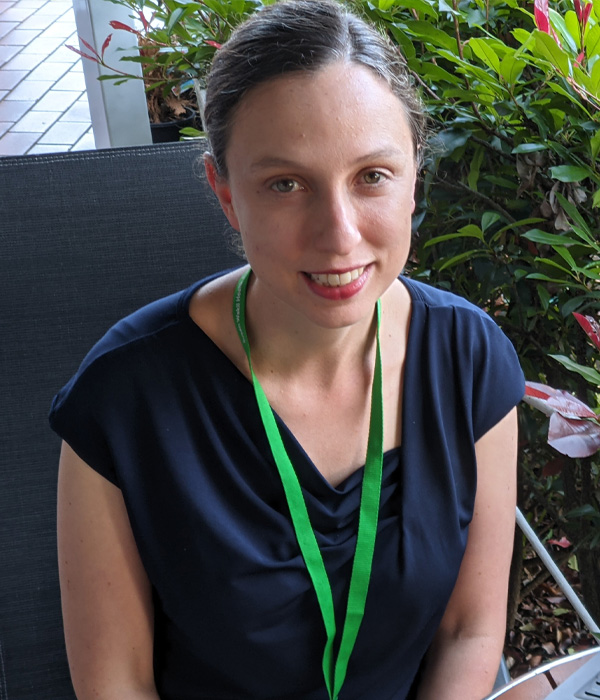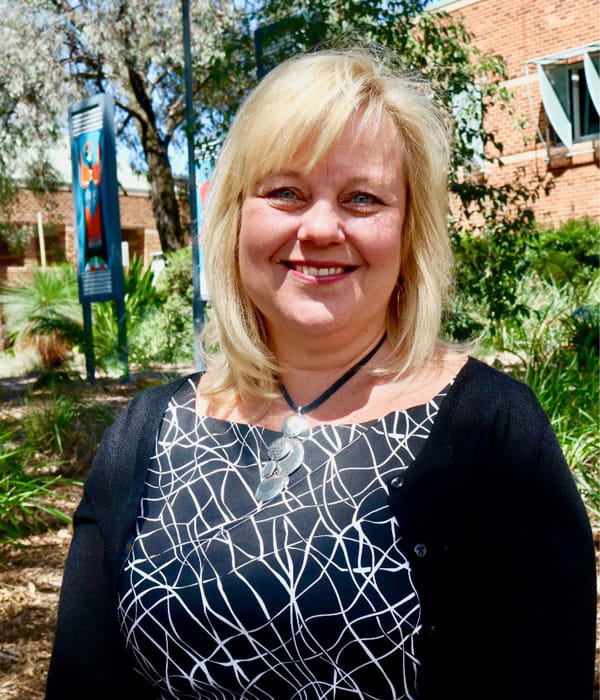Social Brain Toolkit
People with brain injury often have difficulty with social communication skills. Often, family members, friends and support workers can find it challenging to know how best to help.

The Social Brain Toolkit (the Toolkit) is a set of online tools developed to help people with brain injury and their support networks to communicate more successfully together after a brain injury.
Up to 75 per cent (75%) of people experience communication changes after an acquired brain injury (ABI). This can lead to mental health issues, loss of friends and social isolation, difficult family relationships and inability to return to meaningful occupation including work or social participation.
The Toolkit consists of 3 components:
- interact-ABI-lity
- social-ABI-lity
- convers-ABI-lity.
interact-ABI-lity
The interact-ABI-lity short, online course is now available for family, friends or professionals to learn how to communicate with people with brain injury.
The self-guided online resource is for family members, carers, or professionals, to develop skills in interacting successfully with a person with a brain injury.
It is free to access and includes a series of modules and video stories to learn about communication changes after brain injury and how to support people with their communication. The resource is currently being tested as part of a research project.
The two other tools which focus on using social media safely and a conversation skills training program will become available in early 2022.
Designed through collaboration
The Social Brain Toolkit project is a collaboration between the University of Sydney, University of Technology Sydney, Brain Injury Australia and Changineers, funded through by icare. Dr Rachael Rietdijk and Professor Leanne Togher lead the development of the Toolkit.
Dr Rachael Rietdijk is a speech pathologist and post-doctoral research fellow in the Acquired Brain Injury Communication Lab at The University of Sydney.
Professor Leanne Togher is a speech pathologist who specialises in communication disorders following acquired brain injury. She is the Director of Communication Sciences in the School of Health Sciences, Faculty of Medicine and Health at The University of Sydney.
The development of resources has been informed by feedback from people with brain injury, their family members and health professionals.

Dr Rachael Rietdijk

Professor Leanne Togher
The impact
Better communication between people with traumatic brain injury and their communication partners leads to better social outcomes and improved quality of life.
"Communication is the key tool we use to build our relationships and connections with others. When communication is affected by a brain injury, it often means that relationships with family become strained, friendships are lost, and people become isolated," said Dr Rachael Rietdijk, University of Sydney.
“Our aim is that the Social Brain Toolkit will help people with brain injury to have more successful interactions in their everyday lives, support improved relationships between people with a brain injury and their family members, and assist people with a brain injury to stay connected with their friends.”
User feedback on interact-ABI-lity
“An excellent, short, concise and meaningful education course – highly recommend this tool as something our facility and service users would benefit from.”
“I think the information is presented in a clear and concise manner. Useful tips and good analogies.”
The Toolkit will allow people with a brain injury and their support network to easily access resources which assist with the challenges of communication after a brain injury. Speech pathologists will also be able to use these materials in their work with people with a brain injury and their families.
The resources are available in English only at this stage and have been developed with accessibility in mind, using simple English and captioning on videos.

